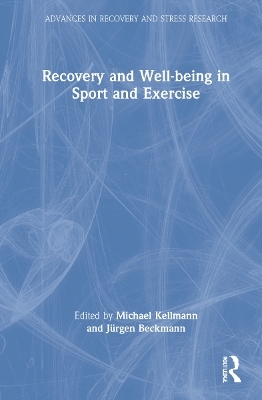
Recovery and Well-being in Sport and Exercise
Routledge (Verlag)
978-1-032-19156-0 (ISBN)
Featuring chapters on overtraining, sleep, the relationship to injury, as well as the role of stress, this volume illustrates how performance, both as an individual and as a team, can be better managed through understanding the recovery process. It also covers the impact of travel on performance, as well as guidance on measurement and training. Based upon the contemporary models of recovery and performance in different scientific disciplines such as medicine, psychology, and sport science, expert contributors also explore implications for applied and strategic interventions to retain and stabilize performance ability.
With a large overlap from Sports, Recovery, and Performance, published in 2017, this book has seen substantial modifications with new and revised chapters. This is a must-have resource for students and scholars across the sports sciences as well as any coach interested in the latest research.
Michael Kellmann is Professor of Sport Psychology at the Faculty of Sport Science at Ruhr University Bochum, Germany. He is also an Honorary Professor in the School of Human Movement and Nutrition Sciences at the University of Queensland, Australia. Jürgen Beckmann is Professor of Sport Psychology, Emeritus of Excellence at the School of Medicine and Health at Technical University of Munich, Germany. He is also Honorary Professor in the School of Human Movement and Nutrition Sciences at the University of Queensland (Australia) and Adjunct Professor at the Dept. of Physical Education and Sport Sceinces of the University of Limerick, Ireland.
Part I: Conceptualizing the problem
1: The value of recovery-stress monitoring for athletes’ well-being
Jahan Heidari, Sarah Jakowski, & Michael Kellmann
2: Developing athlete monitoring systems: Theoretical basis and practical applications
Coutts, A. J., Crowcroft, S., & Kempton, T.
3: Perceptions and practises of recovery modalities in athletes
Venter, R., Diacon, N., & De Wet, J.
Part II: Psychophysiological determinants of underrecovery
4: Overtraining – what do we know?
Meeusen, R., & De Pauw, K.
5: Managing the training load of overreached athletes: Insights from the detraining, reduced training and tapering literature
Bosquet, L., Berryman, N., & Mujika, I.
6: Recovery-stress balance and injury risk in team sports
Brink, M., & Lemmink, K.
7: Stress, underrecovery, and health problems in athletes
Nixdorf, R., Nixdorf, I., & Beckmann, J.
8: Quantification of training and competition loads in endurance sports: A key to recovery-stress balance and performance
Sharma, A. P., & Mujika, I.
Part III: The impact of sleep on recovery
9: The role of sleep in the performance of elite athletes
Caia, J., Kelly, V. G., Driller, M & Halson, S. L.
10: The role of nocturnal dreams in performance and recovery of athletes
Erlacher, D., Schmid, D. & Ehrlenspiel, F.
11: Domestic and international travel: Implications for performance and recovery in team-sport athletes
Duffield, R., & Fowler, P. M.
Part IV: New approaches to recovery
12: Mental fatigue and the concept of mental recovery in sport
Loch, F., Jakowski, S., Hof zum Berge, A., & Kellmann, M.
13: The psychology of rest in sports performers
Eccles, D. W.
14: Recovery and well-being in sport and exercise: A concluding summary
Kellmann, M., & Beckmann, J.
| Erscheinungsdatum | 30.12.2021 |
|---|---|
| Reihe/Serie | Advances in Recovery and Stress Research |
| Zusatzinfo | 2 Tables, black and white; 20 Line drawings, black and white; 1 Halftones, black and white; 21 Illustrations, black and white |
| Verlagsort | London |
| Sprache | englisch |
| Maße | 156 x 234 mm |
| Gewicht | 453 g |
| Themenwelt | Sachbuch/Ratgeber ► Sport |
| Weitere Fachgebiete ► Sportwissenschaft | |
| ISBN-10 | 1-032-19156-2 / 1032191562 |
| ISBN-13 | 978-1-032-19156-0 / 9781032191560 |
| Zustand | Neuware |
| Haben Sie eine Frage zum Produkt? |
aus dem Bereich


